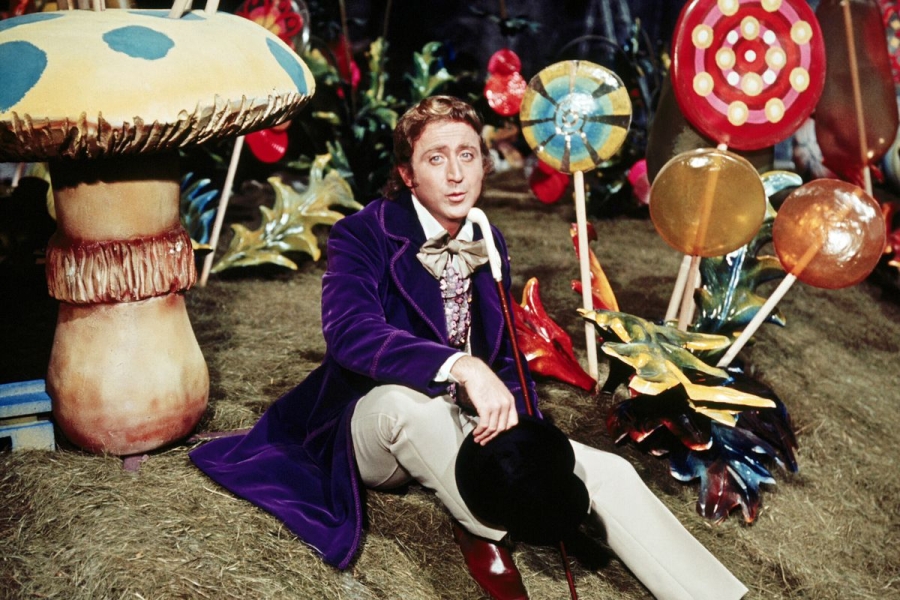The viral fiasco in Scotland that made kids cry — and prompted calls to police.

Li Zhou is a politics reporter at Vox, where she covers Congress and elections. Previously, she was a tech policy reporter at Politico and an editorial fellow at the Atlantic.
Willy Wonka, a storybook character who’s known for the extraordinary treats he creates, was recently featured in an event that was anything but.
In Glasgow, Scotland, families looking forward to an immersive event billed as “Willy’s Chocolate Experience” were met with what they described as an empty warehouse filled with lackluster decorations and few, if any, of the promised treats. Instead, parents and kids were given a half cup of lemonade and two jelly beans each, hardly the “world of pure imagination” they signed up for.
“There was maybe 20 chairs, a couple of tables and a half-inflated bouncy castle,” Stuart Sinclair, a father of three who brought his kids to the event, told the New York Times. Photos of the gathering, which featured sparse decor, frightening new characters, and a disheartened-looking oompa loompa, have captivated people on social media for the last few days.
A ‘Willy Wonka’ “immersive experience” that promised to transport fans into a “magical realm” left kids in tears.
The event turned out to be such a letdown that customers called the police and compared the attraction to a “meth lab.” pic.twitter.com/h0tGykPzzY
— Pop Crave (@PopCrave) February 28, 2024
apparently this was sold as a live Willy Wonka Experience but they used all AI images on the website to sell tickets and then people showed up and saw this and it got so bad people called the cops lmao pic.twitter.com/tfkyg0G0WG
— Chris Alsikkan (@AlsikkanTV) February 26, 2024
The disappointing, barren, and comical nature of the event brings to mind past scams like that of the botched music festival, Fyre Fest, which brought hundreds of concertgoers to the Bahamas for poorly produced concerts that ran low on water. There’s just something about a disastrously executed scam — at least a fairly benign one — that people can’t seem to get enough of.
But there’s something more than schadenfreude going on here: The saga renews scrutiny, too, on the ongoing boom in live events — a market that’s expected to double globally between 2022 and 2032 — and how difficult it can be for consumers to verify that they’re getting exactly what they’re paying for.
Additionally, the experience is the latest to draw attention to the weird role artificial intelligence — and its potential dangers — occupies in our culture right now. Advertisements for the gathering, which were ridden with typos, were similar to those created by AI, per a Business Insider investigation. And at least one actor hired for the event has accused House of Illuminati, the company behind the event, of using AI to write the script for the experience, which is said to have featured nonsensical phrases and odd new characters that don’t exist in the books or related movies.
Beyond serving as a source of entertainment for everyone but the children who attended, the fiasco raises new questions about comparable scams, and how AI can be used to advance them.
How this disastrous event even took place
The event was put on by a London-based company called House of Illuminati, which relied heavily on ads that did not depict any aspect of the event itself. Notably, it also wasn’t affiliated with the estate of author Roald Dahl, Warner Bros., or the Wonka franchise at all.
A prescient Reddit user appeared to predict that it could be a scam, warning people against the gathering more than two weeks ago.
“Has anyone else been getting FB ads for ‘Willys Chocolate Experience?’” user @Prestigious_Try4610 wrote. “Every image is AI generated along with all the gibberish text it try’s to create. Not 1 single picture giving people an idea of what they are shelling out money for and yet people are buying up tickets.”
In lieu of actual photos, the website featured colorful illustrations and promised “a chocolate fantasy,” “magical surprises,” and “optical marvels.”
Parents, who paid about $44 a ticket, and even an actor who participated, say it fell way short, and didn’t even include chocolate.
“In some ways, it was a world of imagination, like imagine that there is a whole chocolate factory here,” Paul Connell, one of the actors hired to portray Wonka, quipped to the Independent. Connell noted he had concerns following the rehearsal, but assumed they’d be allayed by showtime: “I spoke to the people running it and thought, surely by the morning it won’t look like this, and then I turned up in the morning and it absolutely did.”
The event was so bad that the police were called at one point (though the reason was unclear), and it had to be shut down on Saturday afternoon, before it completed its full weekend run.
Since the fiasco, House of Illuminati has said it will issue refunds, with its events director, Billy Coull, offering an apology in an interview with STV News. “My vision of the artistic rendition of a well-known book didn’t come to fruition,” he said. “For that, I am absolutely truly and utterly sorry.”
The AI of it all
The “Willy’s Chocolate Experience” saga has highlighted just how few barriers there are when it comes to the use of deceptive marketing to make money, and how AI might be used to make scams easier to execute.
Police were called to an ‘immersive’ Willy Wonka Experience after families showed up to an ’empty warehouse’
The event reportedly charged $40 for entry, advertised with AI art, and said it would be a ‘journey filled with wondrous creations and enchanting surprises at every… pic.twitter.com/udz8KeWVxQ
— Culture Crave (@CultureCrave) February 27, 2024
Business Insider’s Beatrice Nolan looked into the allegations about AI crafting the Wonka advertising and found that the publication was able to generate comparable images. “Several of the images featured on the website have telltale signs of AI art, and Business Insider was able to create very similar images using AI,” she wrote. Those signs include a surreal use of scale, poorly rendered fingers, and unnaturally delineated forms.
This saga was, realistically, small stakes. It’s a reminder, however, of how AI and other marketing can promise something to people, and really, really fail to deliver.
Source: vox.com





